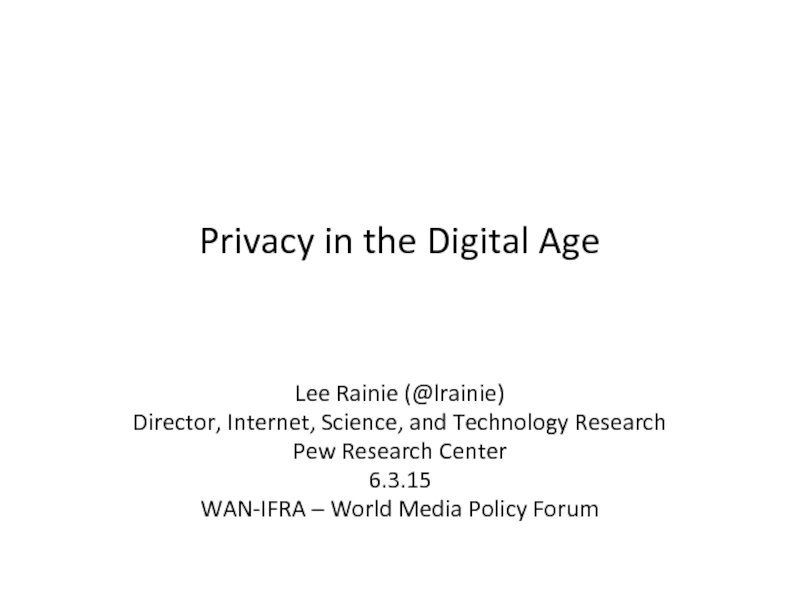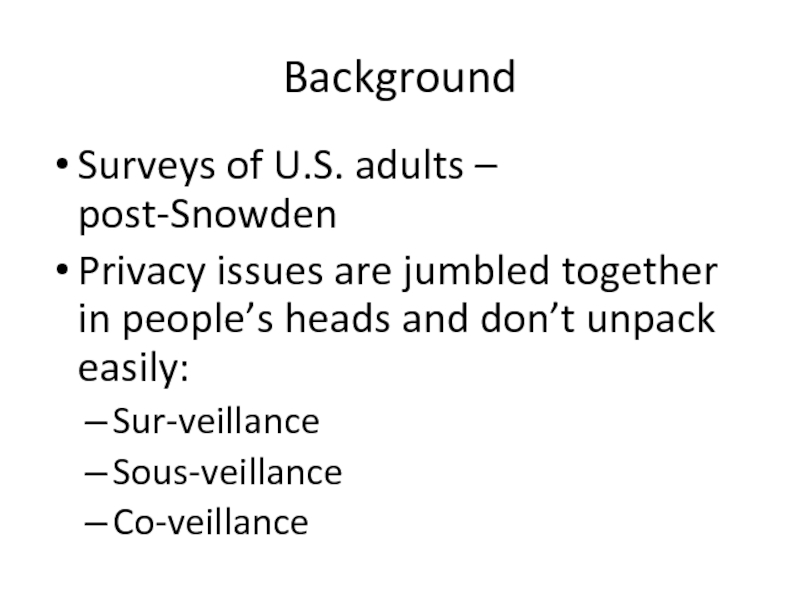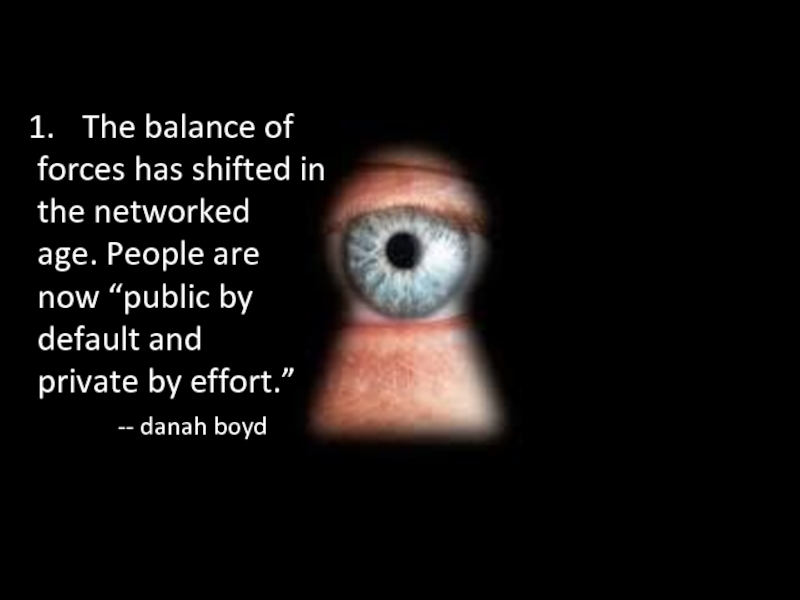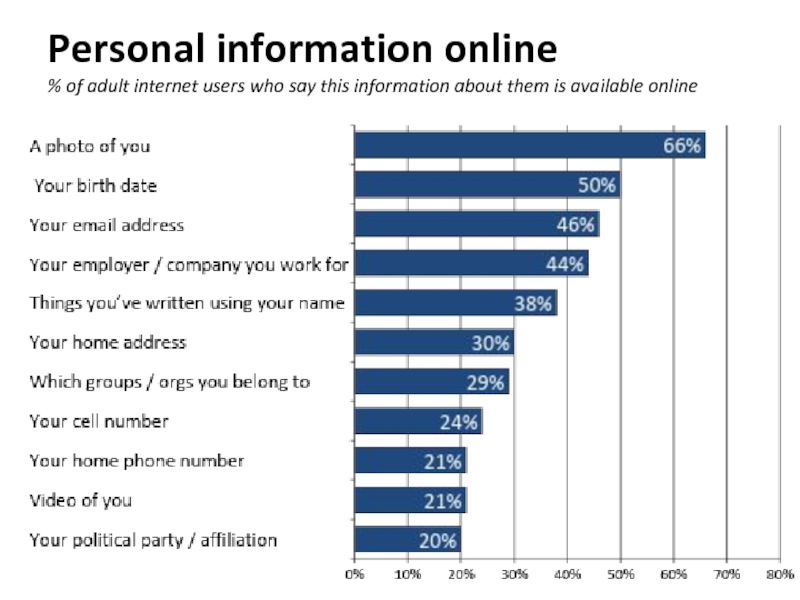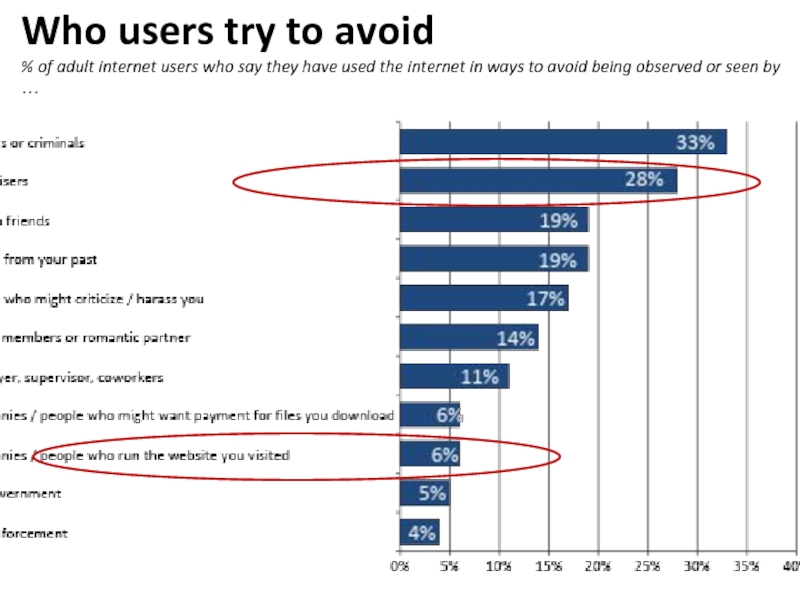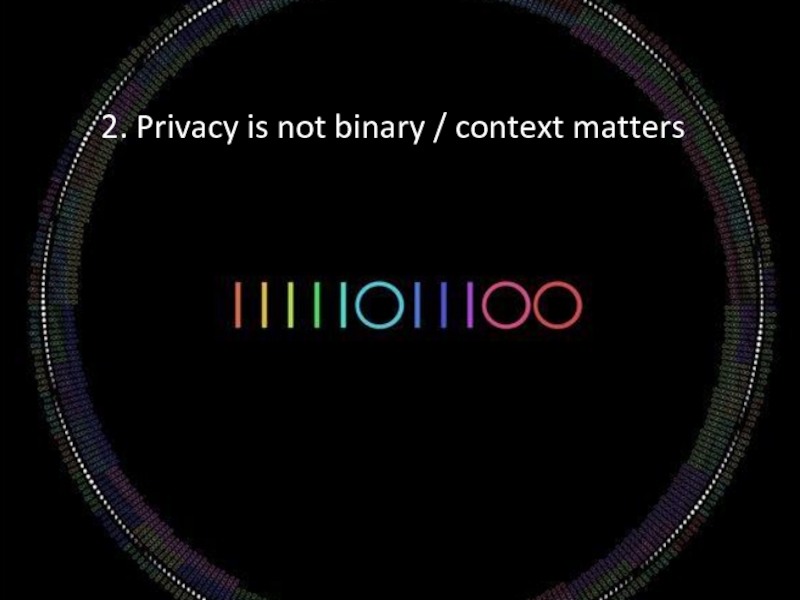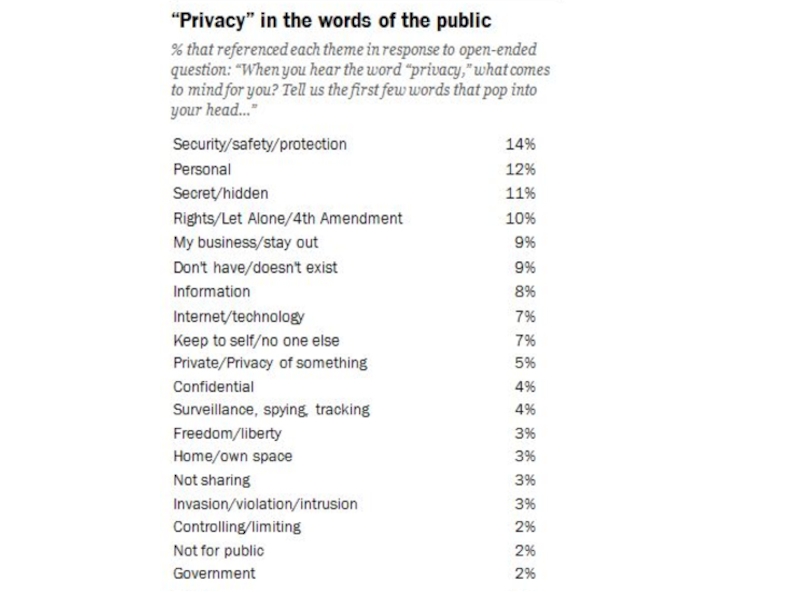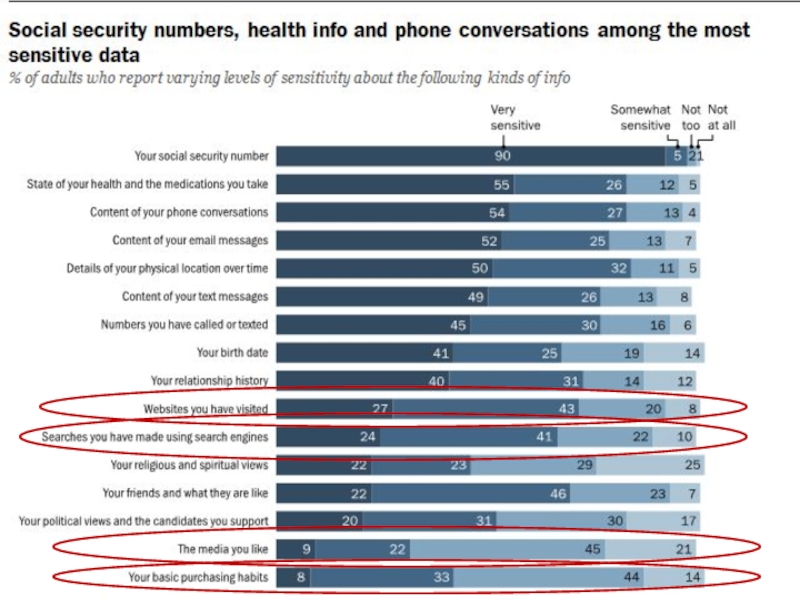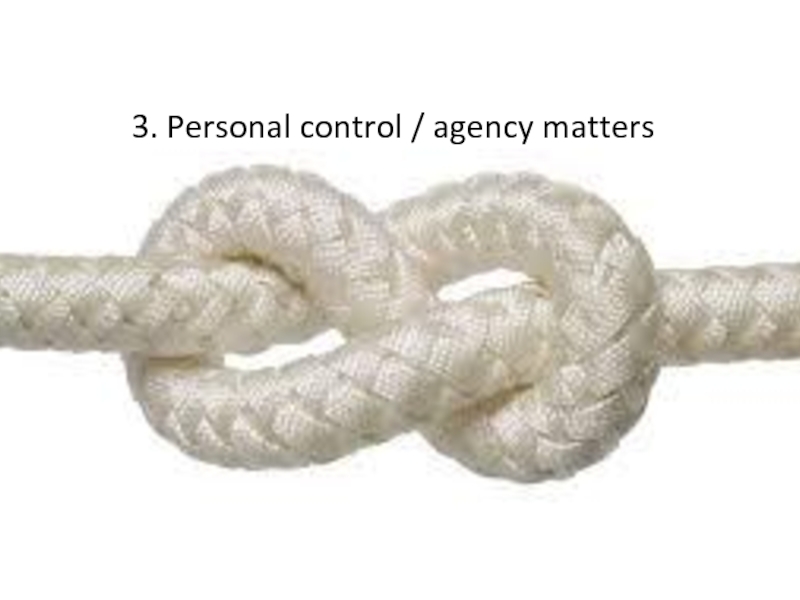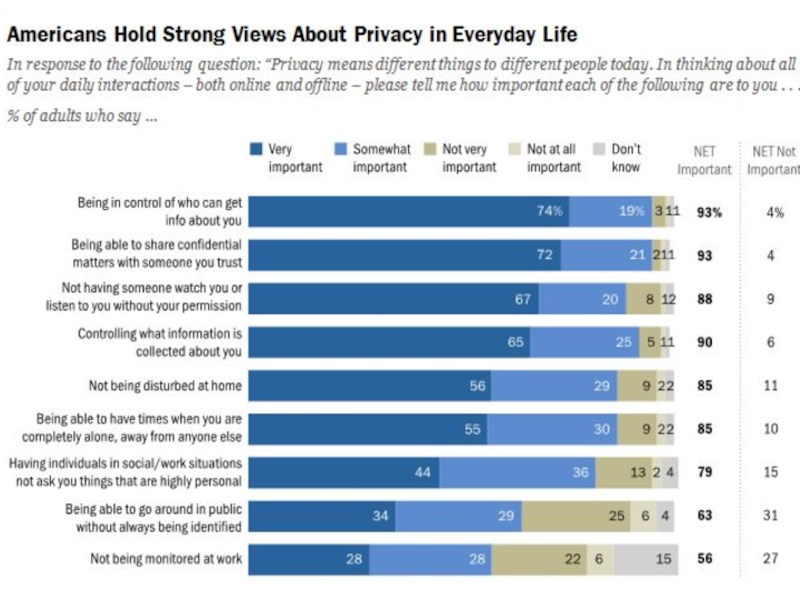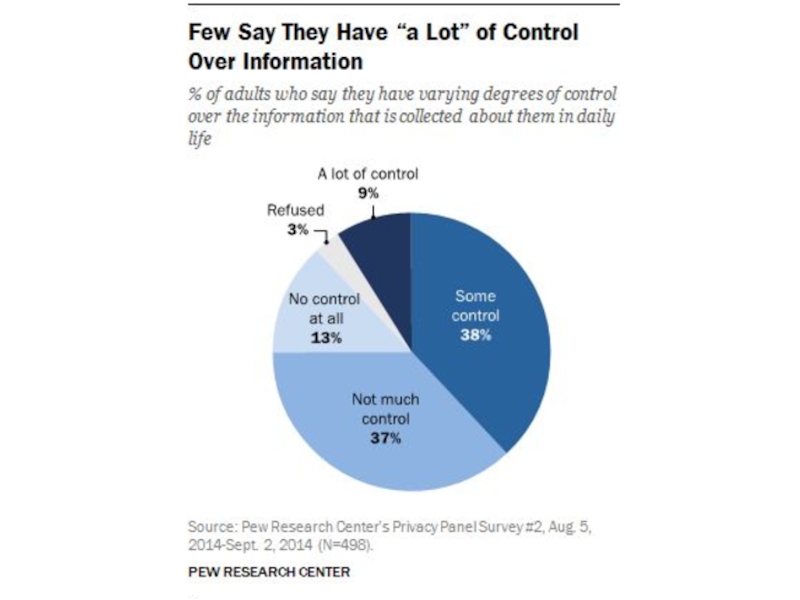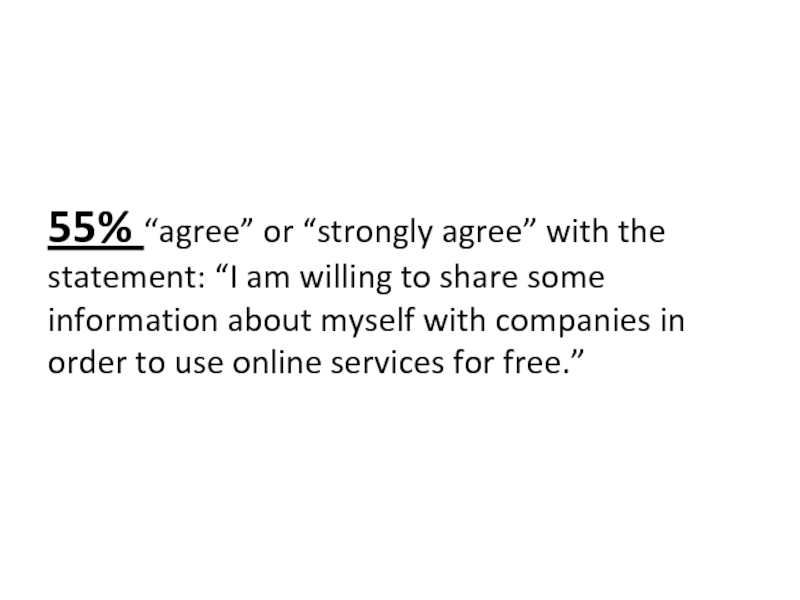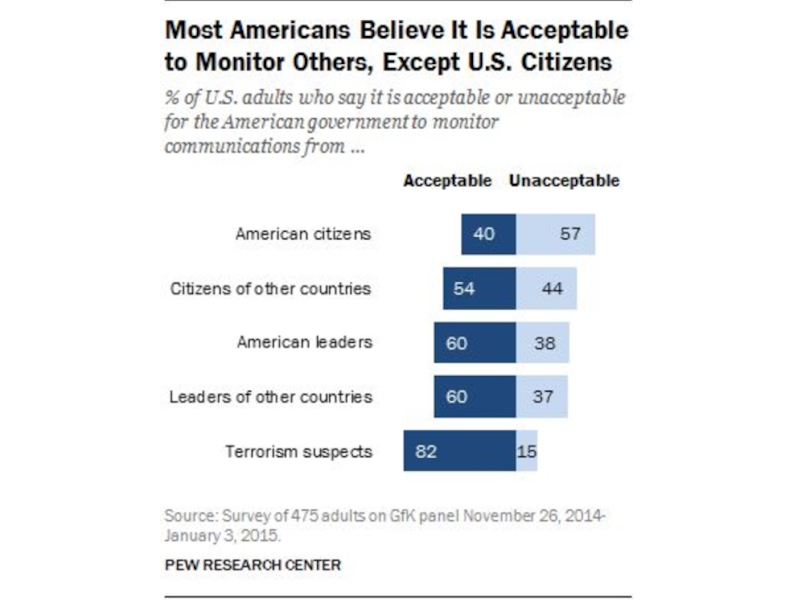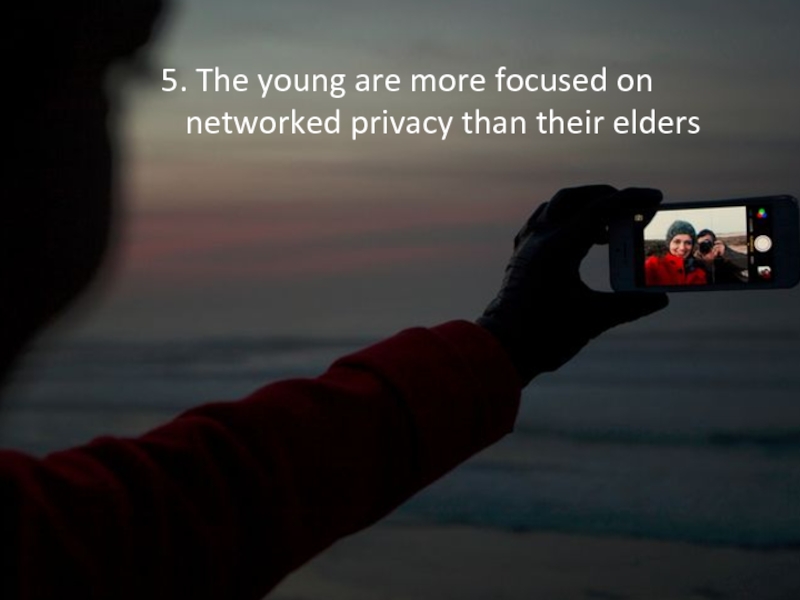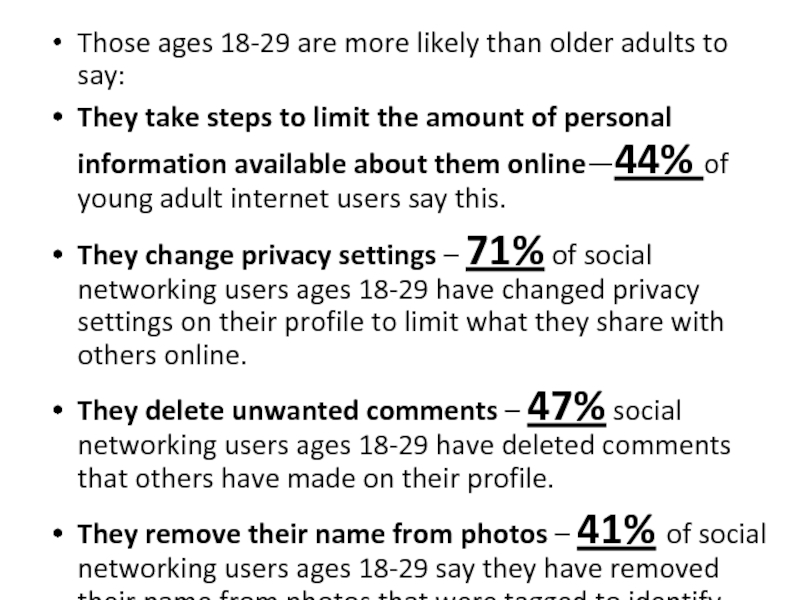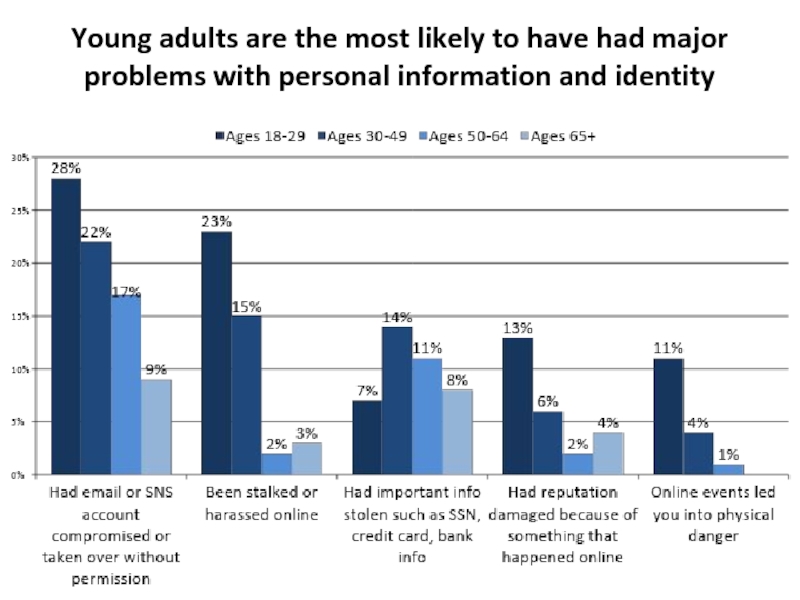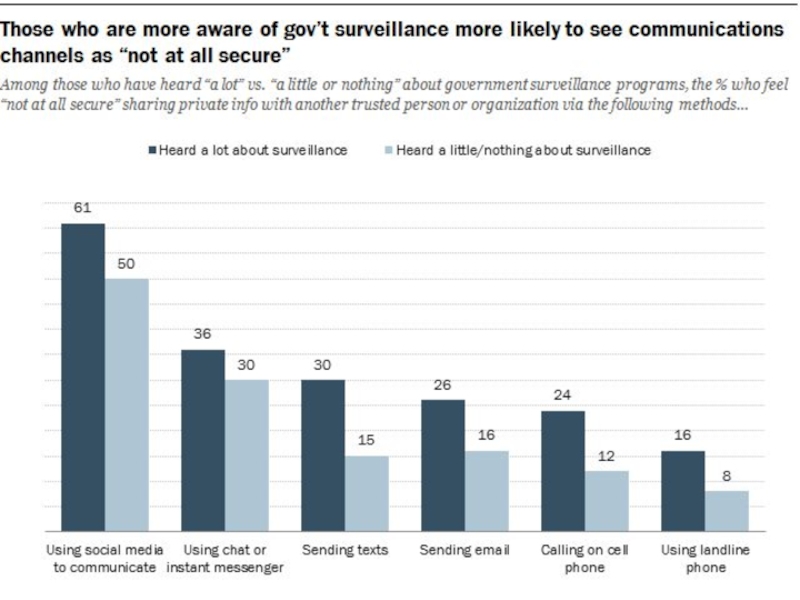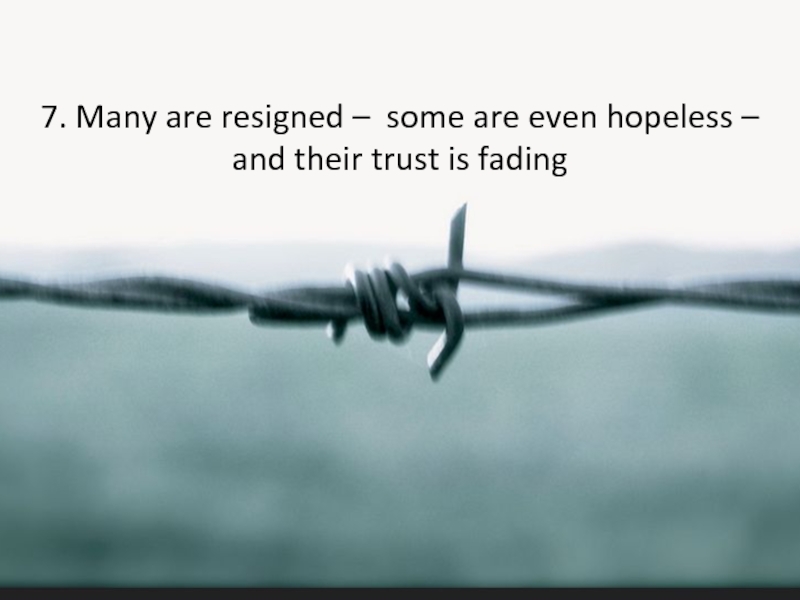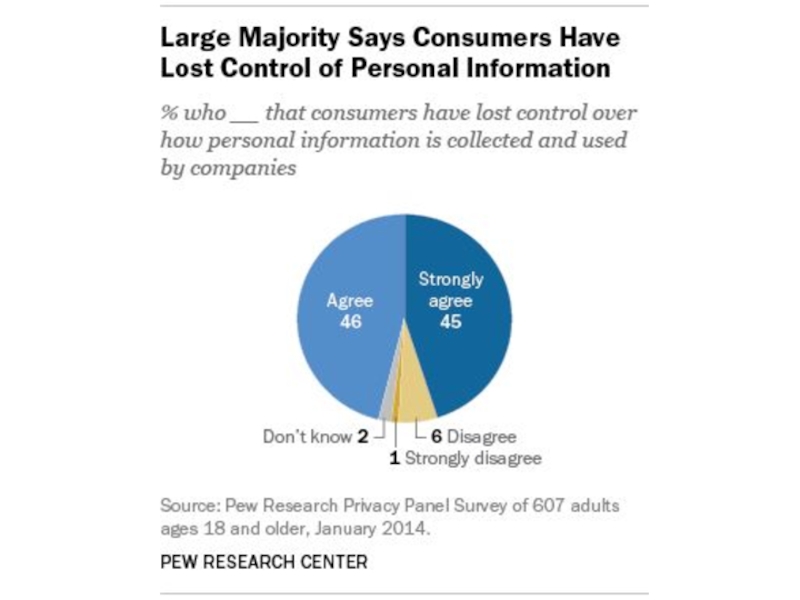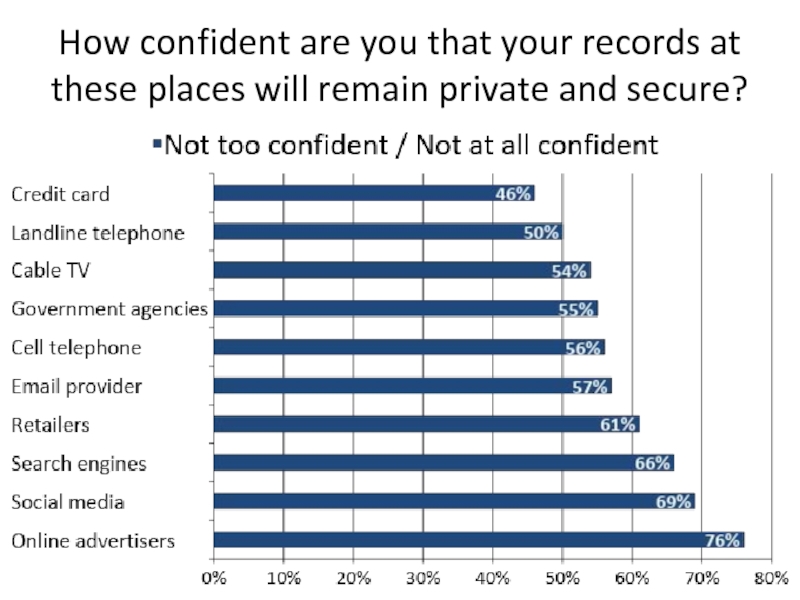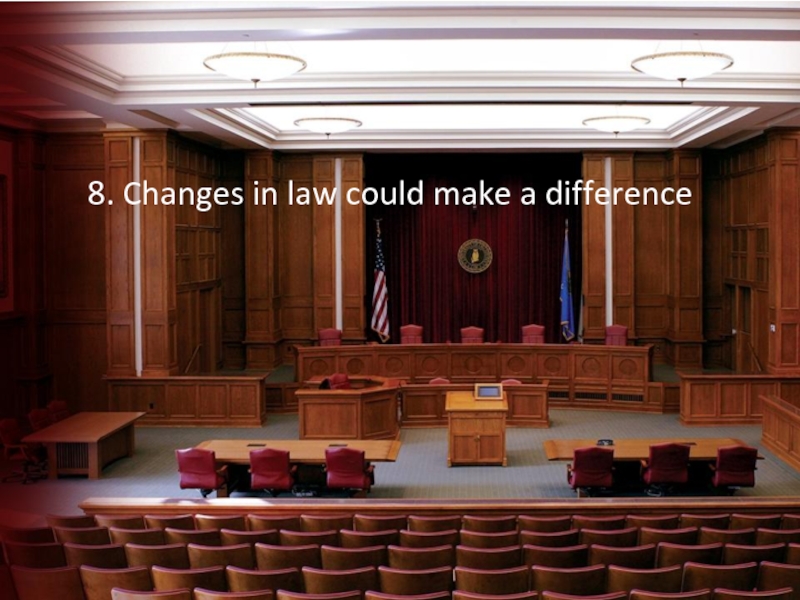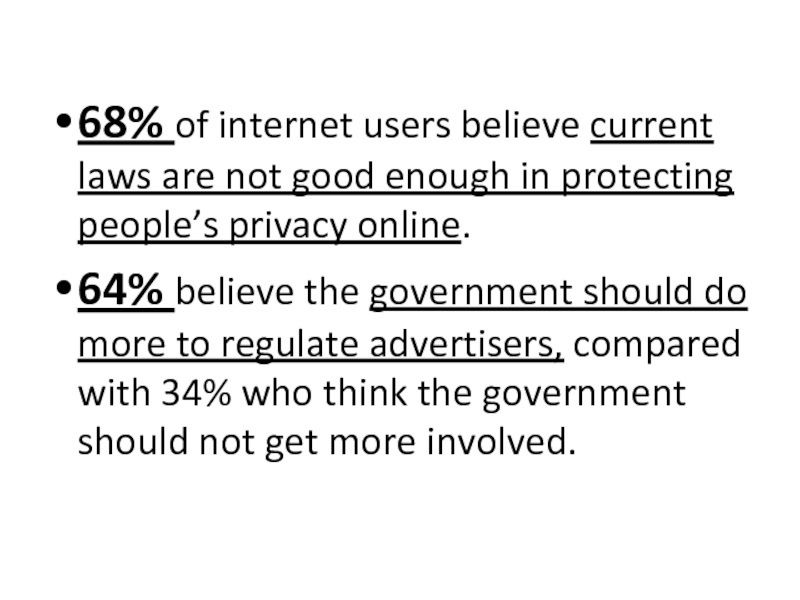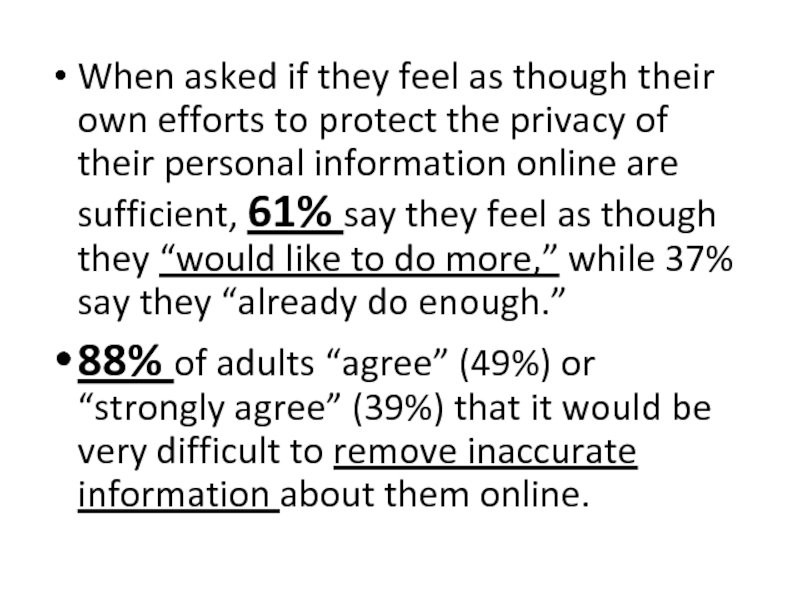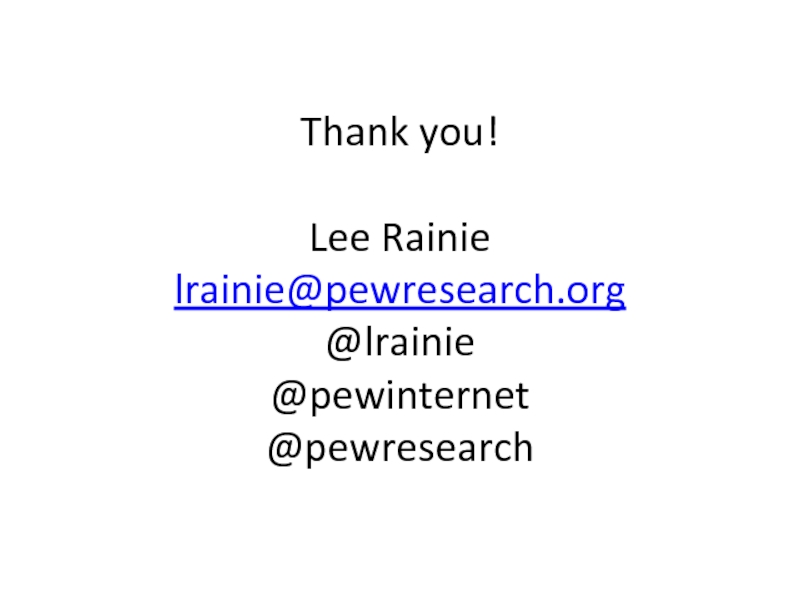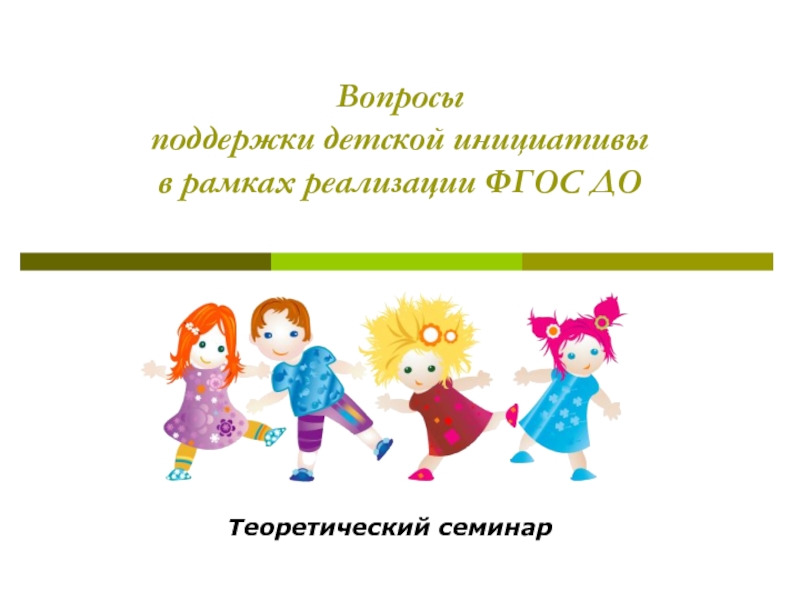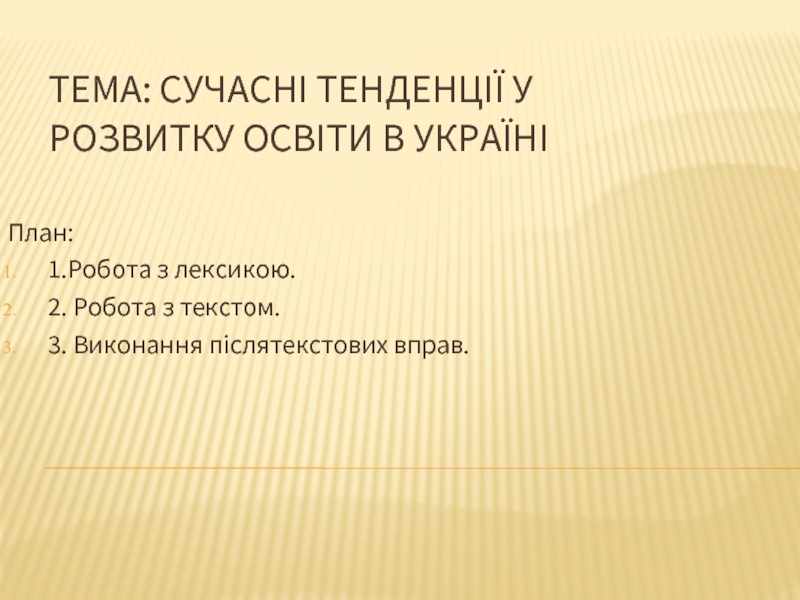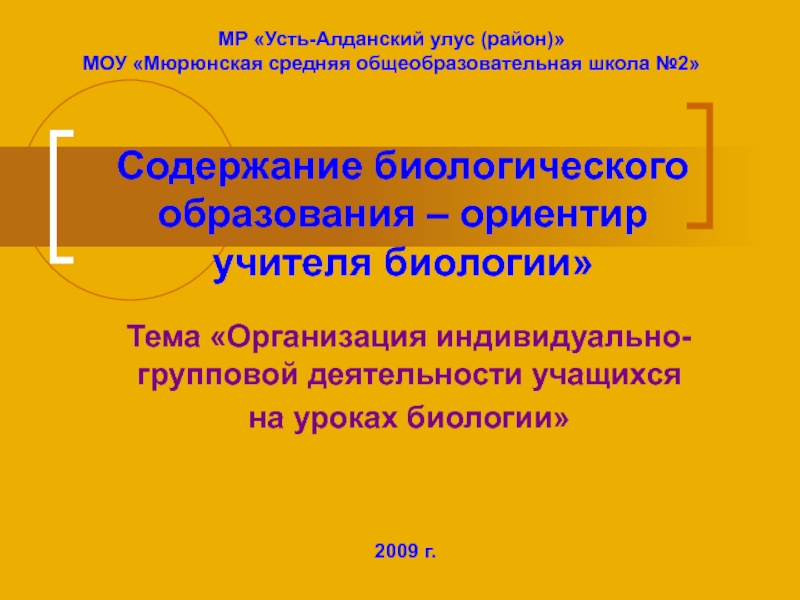Research
Pew Research Center
6.3.15
WAN-IFRA – World Media Policy Forum
- Главная
- Разное
- Дизайн
- Бизнес и предпринимательство
- Аналитика
- Образование
- Развлечения
- Красота и здоровье
- Финансы
- Государство
- Путешествия
- Спорт
- Недвижимость
- Армия
- Графика
- Культурология
- Еда и кулинария
- Лингвистика
- Английский язык
- Астрономия
- Алгебра
- Биология
- География
- Детские презентации
- Информатика
- История
- Литература
- Маркетинг
- Математика
- Медицина
- Менеджмент
- Музыка
- МХК
- Немецкий язык
- ОБЖ
- Обществознание
- Окружающий мир
- Педагогика
- Русский язык
- Технология
- Физика
- Философия
- Химия
- Шаблоны, картинки для презентаций
- Экология
- Экономика
- Юриспруденция
Privacy in the Digital Age презентация
Содержание
- 1. Privacy in the Digital Age
- 3. Background Surveys of U.S. adults – post-Snowden
- 4. The balance of forces has shifted
- 5. Personal information online % of adult internet
- 6. Who users try to avoid %
- 7. 2. Privacy is not binary / context matters
- 11. 3. Personal control / agency matters
- 14. 4. Most accept that certain trade-offs are part of the bargain
- 15. 55% “agree” or “strongly agree” with
- 17. 5. The young are more focused on networked privacy than their elders
- 18. Those ages 18-29 are more likely than
- 19. Young adults are the most likely to
- 20. 6. Many know they do not
- 22. 7. Many are resigned – some are
- 24. How confident are you that your records at these places will remain private and secure?
- 25. Changes in laws would help 8. Changes in law could make a difference
- 26. 68% of internet users believe current laws
- 27. When asked if they feel as though
- 29. Thank you! Lee Rainie lrainie@pewresearch.org @lrainie @pewinternet @pewresearch
Слайд 3Background
Surveys of U.S. adults – post-Snowden
Privacy issues are jumbled together in
people’s heads and don’t unpack easily:
Sur-veillance
Sous-veillance
Co-veillance
Sur-veillance
Sous-veillance
Co-veillance
Слайд 4The balance of
forces has shifted in
the networked
age. People are
now
“public by
default and
private by effort.”
-- danah boyd
default and
private by effort.”
-- danah boyd
Слайд 5Personal information online % of adult internet users who say this information
about them is available online
Слайд 6Who users try to avoid % of adult internet users who
say they have used the internet in ways to avoid being observed or seen by …
Слайд 15
55% “agree” or “strongly agree” with the statement: “I am willing
to share some information about myself with companies in order to use online services for free.”
Слайд 18Those ages 18-29 are more likely than older adults to say:
They
take steps to limit the amount of personal information available about them online—44% of young adult internet users say this.
They change privacy settings – 71% of social networking users ages 18-29 have changed privacy settings on their profile to limit what they share with others online.
They delete unwanted comments – 47% social networking users ages 18-29 have deleted comments that others have made on their profile.
They remove their name from photos – 41% of social networking users ages 18-29 say they have removed their name from photos that were tagged to identify them.
They change privacy settings – 71% of social networking users ages 18-29 have changed privacy settings on their profile to limit what they share with others online.
They delete unwanted comments – 47% social networking users ages 18-29 have deleted comments that others have made on their profile.
They remove their name from photos – 41% of social networking users ages 18-29 say they have removed their name from photos that were tagged to identify them.
Слайд 19Young adults are the most likely to have had major problems
with personal information and identity
Слайд 206. Many know they do not
know what is going
on ….
Those who know the most
are more worried
and wary
Those who know the most
are more worried
and wary
Слайд 2668% of internet users believe current laws are not good enough
in protecting people’s privacy online.
64% believe the government should do more to regulate advertisers, compared with 34% who think the government should not get more involved.
64% believe the government should do more to regulate advertisers, compared with 34% who think the government should not get more involved.
Слайд 27When asked if they feel as though their own efforts to
protect the privacy of their personal information online are sufficient, 61% say they feel as though they “would like to do more,” while 37% say they “already do enough.”
88% of adults “agree” (49%) or “strongly agree” (39%) that it would be very difficult to remove inaccurate information about them online.
88% of adults “agree” (49%) or “strongly agree” (39%) that it would be very difficult to remove inaccurate information about them online.
